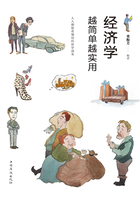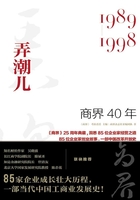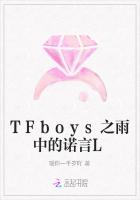A third charcteristic of share contracts is that the rental percentage may vary among different crops in one contract(see sample e).As is implied by the theory of share tenancy,the rental percentage is dependent upon the cost of tenant inputs and the relative fertility of land.Since different crops usually require different ratios of tenant inputs to land,the sharing percentages for different crops should be expected to differ within a single contract.But any set of different rental percentages for different crops can also be expressed in terms of a single(weighted time average)rental percentage,uniform for all crops,to yield the same present value of the rental return.It appears that the latter option of a uniform rental percentage(see contract sample d)would be more convenient.However,if a tenant is subject to dismissal at any time in the event of poor performance,the use of one uniform rental percentage for crops harvested at different seasons would be likely to lead to disputes or renegotiation should tenancy dismissal be in effect.We usually find a uniform rental percentage being used in a share lease with specified duration,and that,when multiple percentages are found in a lease with indefinite duration,a uniform percentage is usually used for different crops harvested in the same season(see contract sample e).
We may summarize the characteristics of share contracts by quoting the observation made by two writers-who were critical of tenant farming in China:
Under the system of share rent,the yields after each harvest are to be shared according to certain mutually stipulated percentages between the landowner and the tenant.With the exception of some land used for farmstead purposes,the tenant is required to cultivate almost all the assigned fields for the production of crops.Sometimes,the tenant is even required to furnish farming equipment……and other expenses.The landowner and the tenant mutually decide the area to be used for each crop……Besides the above,the only affair of management over which the landowner exercises control is confined to permanent improvements of land assets.This last characteristic is identical with fixed-rent contracts.[16]
[1].See J.L.Buck,Farm Ownership and Tenancy in China(Shanghai:National Christian Council,1927).
[2].National Government,Statistics Department,Statistical Analysis of Tenancy Systems in China(China:Cheng Chung Book Store,1942),pp.52-53.
[3].Pe-Yu Chang and Yin-Yuen Wang,Questions of Farm Tenancy in China(Chungking:Commercial Press,1943),p.68.
[4].National Government,Statistical Analysis,pp.54-55.
[5].See ibid.,pp.53-54;and Chang and Wang,Questions of Farm Tenancy,pp.67-70.
[6].Department of Real Estates,China Economic Yearbook(China,1936),pp.G62-83.
[7].Executive Yuan,Changes in Land Rights(China,1942),no.2.The data were obtained from sample contracts in fourteen provinces in 1938.
[8].Unfortunately,I have not been able to find data that would confirm or refute this statement.
[9].Note that with a share contract the landowner not only shares the possible loss in a bad year,but also the gain of a good harvest which will reduce the risk premium by a fraction.
[10].See the University of Nanking,Rental Systems in Four Provinces(Nanking,1936),pp.65-67.
[11].National Government,Statistical Analysis,pp.54-55.
[12].Chang and Wang,Questions of Farm Tenancy,p.63.
[13].Ibid.,pp.63-64.
[14].Sample share contracts had not been available to me when chapter 2 was written.When I predicted that,according to economic theory,tenant inputs are stipulated in a share contract,I did not mention the stipulation of multiple crop plantations because only one mutually agreed product was assumed.
[15].J.L.Buck,Chinese Farm Economy(Chicago:University of Chicago Press,1930),pp.149-50.
[16].Chang and Wang,Questions of Farm Tenancy,p.49.For similar observations see Ching-Moh Chen,Land Rents of Various Provinces in China(Shanghai:Commercial Press,1936);Chi-Ming Chiao,A Social and Economic Study of Farm Villages in China(Nanking:University of Nanking,1938),chap.9;and China Economic Research Department,Source Materials of Recent Chinese Agricultural History,1912-27(Peking:United Book Store,1957),pp.89-95.
C.The Duration of Lease Contracts
An investigation conducted in China(1934),covering a total of ninety-three prefectures in eight provinces,shows that the dis-tribution of lease durations was as follows:29 percent of the tenant contracts were indefinite(that is,unspecified and usually terminable after every harvest),25 percent annual leases,27 per-cent from three to ten years,8 percent from ten to twenty years,and 11 percent were perpetual leases.[1] Two things should be noted.First,a stipulated lease duration means only that tenancy may not be terminated as long as the contracted terms are ful-filled by each party.That the duration of the lease is specified does not prohibit mutual renegotiations within the lease duration.Second,as the frequency of short-term leases has been used to illustrate the turnover rate of tenancy,it should be pointed out that lease termination is not the same as tenancy dismissal.Available data reveal that the frequency of tenancy dismissal was not high.[2]
In the literature on land tenure,two arguments have been commonly used in support of the alleged inefficiency of lease durations of less than ten years.[3] One of them claims that short durations impose insecurity on the tenant and thus impair his incentive to farm.But insecurity,although undesirable for the tenant,may provide a stimulus to farming activity.[4] Another argument is that the short-term lease discourages investment in land.But this is refuted by the fact that yields per acre on tenant farms are not lower than on owner farms;nor has any evidence been offered to show that,in China,productivity under tenancy varies with the duration of a leasing contract.















